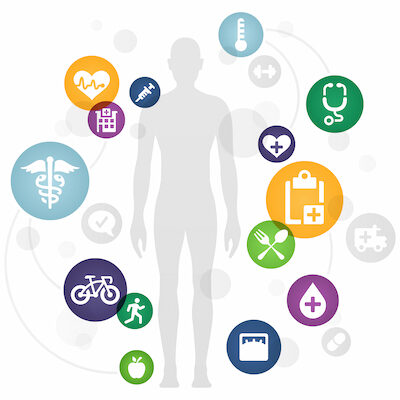Table of Contents
Clinical Trial Emulation: Bridging the Gap Between Observational Studies and Randomized Controlled Trials
Clinical research has long been dominated by two primary methodologies: observational studies and randomized controlled trials (RCTs). Observational studies offer the benefit of real-world data and large sample sizes but often struggle with issues of bias and confounding variables. RCTs, on the other hand, are the gold standard for establishing causality but can be expensive, time-consuming, and sometimes ethically or practically unfeasible. In recent years, a promising approach called clinical trial emulation has emerged, aiming to harness the strengths of both methodologies while mitigating their weaknesses.
What is Clinical Trial Emulation (CTE)?
It involves designing and analyzing observational studies in a manner that closely mimics the structure and rigor of RCTs. This approach leverages large datasets from electronic health records (EHRs), registries, and other sources to create a synthetic version of an RCT. The goal is to draw causal inferences about treatment effects with a level of confidence that approaches that of an RCT.
Key Components of CTE
- Target Trial Specification: The process begins with specifying the hypothetical RCT, known as the “target trial.” This includes defining the population, intervention, comparator, outcome, and follow-up period. The target trial acts as a blueprint for the emulation.
- Eligibility Criteria: Similar to an RCT, specific inclusion and exclusion criteria are established to create a study cohort from the observational data. This ensures that the study population closely matches the intended patient group.
- Treatment Assignment: Instead of random assignment, clinical trial emulation uses sophisticated statistical techniques to account for the lack of randomization. Propensity score matching, inverse probability weighting, and other methods are employed to balance the treatment groups on baseline characteristics.
- Outcome Measurement: Outcomes are clearly defined and consistently measured, akin to an RCT. This may involve using validated algorithms to extract relevant data from EHRs or other sources.
- Follow-Up: A predefined follow-up period is established, and appropriate statistical methods are used to handle censoring and missing data.
Advantages of CTE
- Efficiency: Emulating a clinical trial using existing data can be much faster and less costly than conducting a new RCT. This is particularly advantageous in urgent public health situations, such as during the COVID-19 pandemic.
- Ethical Considerations: Some questions cannot be ethically tested in an RCT due to the potential harm of withholding treatment. Clinical trial emulation allows researchers to investigate these questions using observational data.
- Generalisability: Observational datasets often include diverse populations that may be underrepresented in RCTs. This enhances the generalizability of findings to real-world settings.
- Feasibility: In scenarios where RCTs are logistically challenging or impossible to conduct, such as rare diseases or long-term outcomes, clinical trial emulation offers a viable alternative.
Challenges and Limitations
While clinical trial emulation holds great promise, it also faces several challenges:
- Data Quality and Completeness: The reliability of emulation studies hinges on the quality and completeness of the observational data. Missing data, misclassification, and inaccuracies can bias results.
- Confounding: Despite advanced statistical adjustments, residual confounding can never be entirely eliminated. This is a fundamental limitation of non-randomized studies.
- Selection Bias: The process of selecting participants from observational datasets may introduce bias if the criteria are not meticulously designed and applied.
- Complexity: Designing and executing an emulation study is complex and requires expertise in both clinical epidemiology and advanced statistical methods. Missteps in the design or analysis phase can lead to misleading conclusions.
Practical Applications
Clinical trial emulation has already demonstrated its utility in various fields. Here are a few notable examples:
- COVID-19 Treatments: During the COVID-19 pandemic, researchers used clinical trial emulation to rapidly assess the effectiveness of treatments like hydroxychloroquine and remdesivir, using data from hospitals and health systems worldwide.
- Cardiovascular Disease: Emulation studies have been conducted to evaluate the long-term effects of statins and other cardiovascular treatments, providing insights that complement findings from traditional RCTs.
- Oncology: In cancer research, where long-term outcomes and ethical concerns often limit RCTs, clinical trial emulation has been used to study the effects of new therapies and treatment strategies.
Future Directions
The field of clinical trial emulation is rapidly evolving, with several areas poised for development:
- Integration of Machine Learning: Advanced machine learning techniques can enhance the ability to control for confounding variables and improve the accuracy of emulation studies.
- Standardization of Methods: Developing standardized protocols and guidelines for clinical trial emulation will enhance reproducibility and credibility.
- Hybrid Designs: Combining elements of RCTs and emulation studies, known as hybrid designs, can leverage the strengths of both approaches. For instance, an initial RCT might be followed by an emulation study to explore long-term outcomes.
- Regulatory Acceptance: Increased dialogue between researchers and regulatory bodies is necessary to establish the role of emulation studies in the approval and monitoring of new treatments.
Conclusion
Clinical trial emulation represents a significant advancement in the field of clinical research. By bridging the gap between observational studies and RCTs, it offers a powerful tool for generating robust, real-world evidence on the effectiveness and safety of medical interventions. While challenges remain, ongoing methodological advancements and increased adoption of this approach have the potential to transform the landscape of clinical research, making it more efficient, ethical, and inclusive. As the healthcare landscape continues to evolve, clinical trial emulation will undoubtedly play a crucial role in shaping the future of evidence-based medicine.
You may be interested in…




